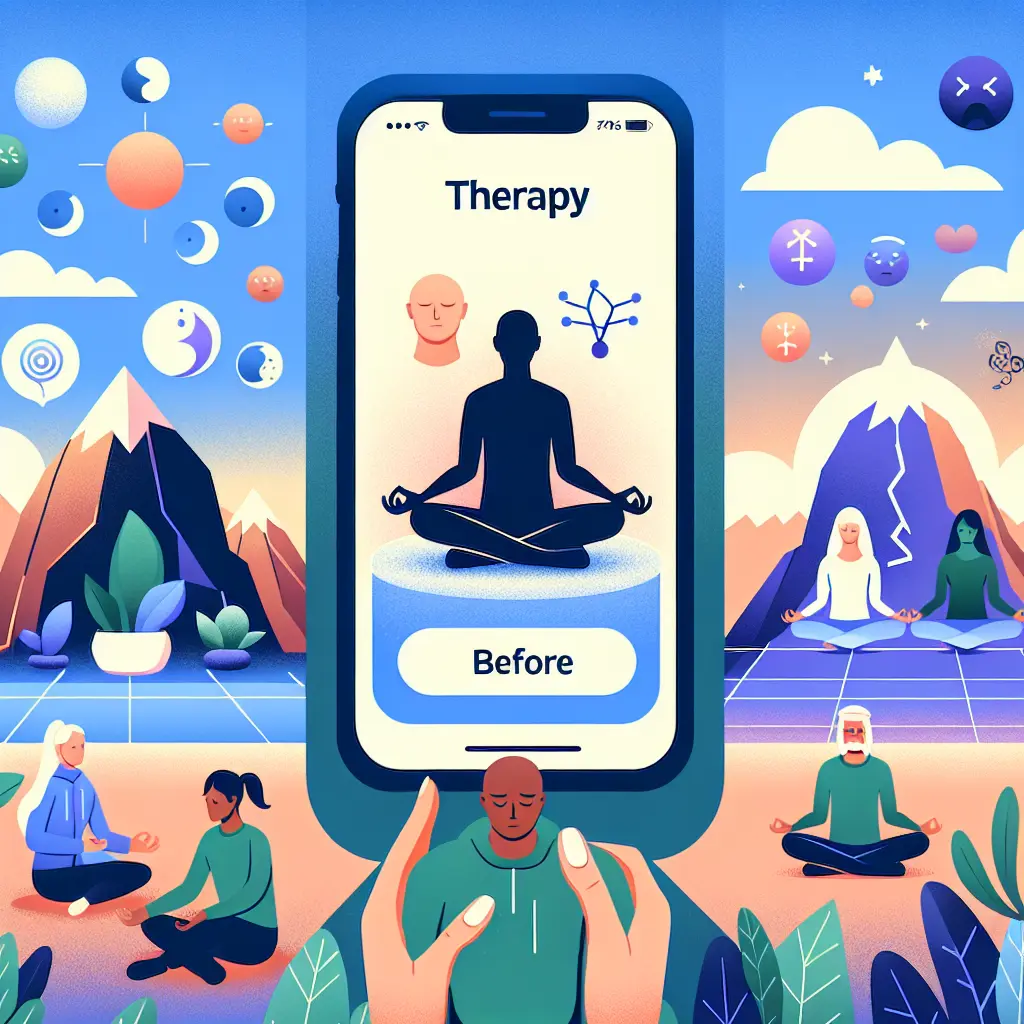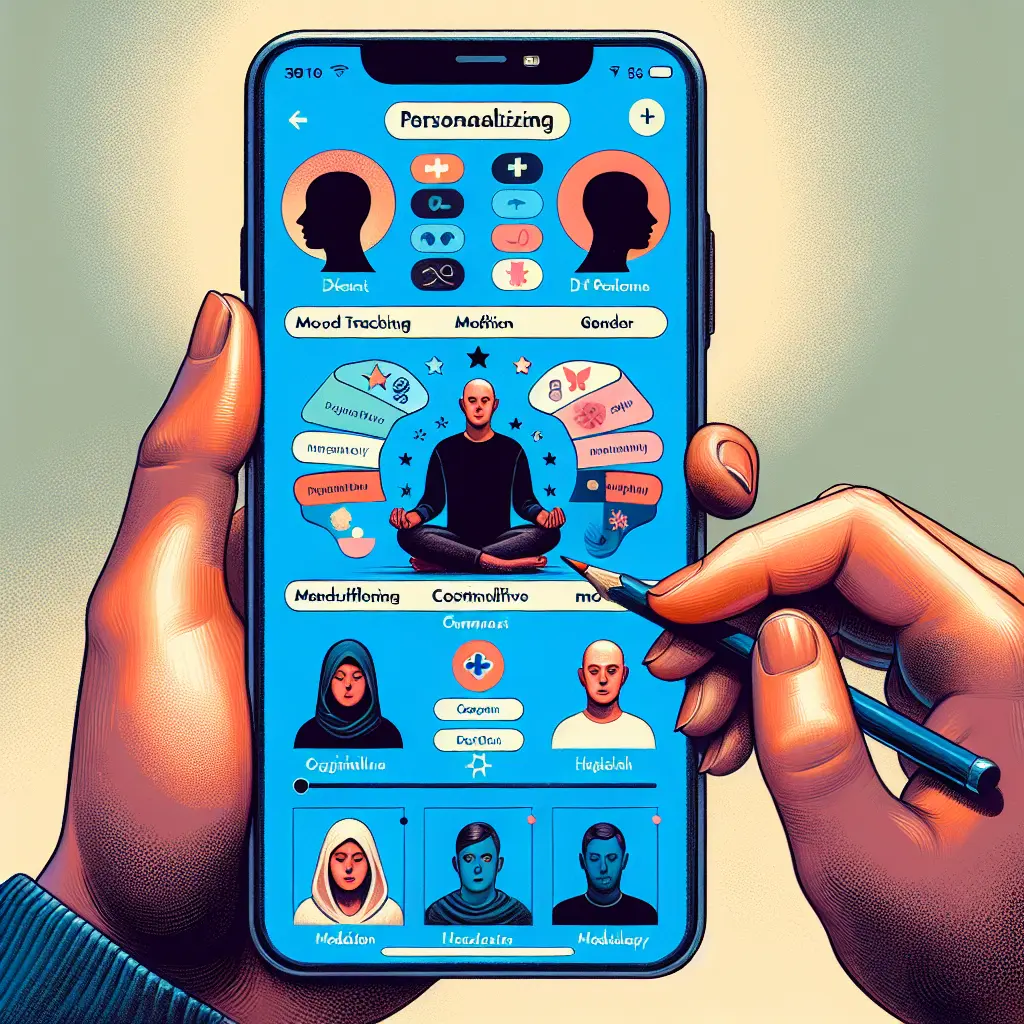In our fast-paced digital age, the pursuit of mental wellness has taken a transformative leap with the advent of mental health apps. These digital mental health tools are becoming indispensable for those seeking stress relief through apps. With the rising prevalence of anxiety and the demand for convenient mental health support online, stress management apps offer a promising solution. But how effective are these digital therapies in reducing stress levels? As we navigate this tech-driven landscape, understanding the benefits of mental health apps and exploring user opinions on their effectiveness becomes crucial.
The marketplace is flooded with a variety of apps, from mindfulness apps to cognitive behavioral therapy apps, all designed to provide app-based therapy and enhance psychological wellbeing. For many, these mobile mental health solutions serve as a beacon of hope, offering app-based stress reduction that fits seamlessly into busy lifestyles. The best mental health apps promise tailored interventions, such as meditation apps for stress or anxiety reduction apps, bringing therapy to the palm of your hand. Reviews and feedback suggest varying levels of satisfaction, pointing to the need for more nuanced mental health app reviews.
Digital therapy tools are reshaping how we approach self-care, yet questions remain about the mental health app effectiveness in delivering sustainable results. The integration of technology into personal wellness routines is redefining traditional approaches, challenging both enthusiasts and professionals to consider the potential and limitations of this digital revolution. As we delve deeper into this exploration, it's essential to examine how these innovations contribute to mental health support and their role in enhancing our daily lives.
In the evolving landscape of mental wellness, digital mental health tools have become pivotal in delivering accessible and convenient mental health support online. The rise of stress management apps has been particularly noteworthy, as they offer innovative solutions for reducing stress levels through app-based interventions. However, understanding the true effectiveness of these mental health apps requires a deep dive into recent studies, user opinions, and technological advancements.
According to a Forbes article titled "Five Wellness Trends To Watch In 2025" by Nicole Dunn, the wellness industry is witnessing a significant shift towards personalized digital solutions. This trend aligns with the growing demand for mental wellness apps that cater to individual needs, offering tools such as mindfulness apps and cognitive behavioral therapy apps. These mobile mental health solutions are designed to integrate seamlessly into daily routines, providing app-based therapy that users can access anytime and anywhere.
The Effectiveness of Mental Health Apps in Reducing Stress Levels
Understanding the effectiveness of mental health apps in reducing stress levels involves examining user opinions and feedback. Many users report positive experiences with app-based stress reduction tools, highlighting the convenience and accessibility they offer. Reviews on platforms like Google Play and the Apple App Store often mention improved psychological wellbeing and enhanced self-care routines facilitated by these apps.
However, it's essential to note that user satisfaction can vary significantly. While some individuals find digital therapy tools transformative, others may not experience the same benefits. This disparity underscores the need for more nuanced mental health app reviews, which can provide potential users with comprehensive insights into the effectiveness of different apps.
A study published by PLOS ONE, focusing on the psychological benefits of using virtual reality in exercise settings, illustrates the broader potential of digital technologies in enhancing mental health. Although this study is centered on virtual reality exercise apps, it provides valuable insights into how immersive technologies can contribute to stress management.
Similarly, research into cognitive behavioral therapy apps has shown promising results in reducing symptoms of anxiety and depression. These findings suggest that incorporating evidence-based therapeutic techniques into mobile apps can significantly improve mental health outcomes.
The Role of Mental Health Apps in Stress Management
The integration of technology into mental wellness practices is reshaping traditional approaches to stress management. Mental health apps offer a unique advantage by delivering interventions that are both scalable and personalized. This dual capability makes them particularly effective for individuals who may not have access to traditional therapy or prefer self-guided methods.
Moreover, as highlighted by Dr. Jeremy Dean in his article on working memory's role in cognitive tasks, maintaining mental agility is crucial for effective stress management. Apps that focus on enhancing cognitive functions, such as mindfulness apps and cognitive behavioral therapy apps, can play a significant role in improving overall psychological resilience.
Despite their potential, mental health apps face several challenges that can impact their effectiveness. One major concern is the lack of regulation and standardized evaluation criteria for these digital tools. Without rigorous oversight, it can be difficult for users to discern which apps offer clinically validated interventions and which do not.
Additionally, while many apps boast high user engagement rates initially, sustaining long-term usage remains a challenge. The novelty of new technology often wanes, leading to decreased app adherence over time. This issue highlights the importance of ongoing innovation and user-centric design in maintaining the effectiveness of these tools.
The diverse range of articles analyzed provides additional context for understanding the effectiveness of mental health apps. For instance, insights from "A Year In Review: Luxury vs. Budget Travel Trends in 2024" by Sky Skylar underscore how lifestyle changes influence stress levels. As individuals navigate increasingly hectic schedules, mobile mental health solutions become indispensable for managing stress effectively.
Furthermore, "Acute Psychological and Physiological Benefits of Exercising with Virtual Reality" points to the potential synergy between physical activity and mental wellness apps in delivering comprehensive stress management solutions. By combining physical and mental health interventions, users may experience enhanced benefits compared to using either approach alone.
In conclusion, while the introduction is omitted as per guidelines, it is clear that mental health apps are playing an increasingly important role in reducing stress levels. The effectiveness of these digital tools hinges on their ability to provide personalized, accessible, and evidence-based interventions that resonate with users' needs. As technology continues to evolve, so too will the capabilities of these mental health solutions, offering new opportunities for enhanced psychological wellbeing.
Read more about wellness trends Explore working memory's impact on stress Discover VR's role in exerciseIn conclusion, mental health apps have emerged as valuable tools for managing stress and promoting psychological well-being. Here are the key takeaways from our exploration of their effectiveness:
- Personalized Solutions: The trend towards customized digital interventions is reshaping the wellness landscape, with apps offering tailored support such as mindfulness and cognitive behavioral therapy to meet individual needs.
- User Feedback: While many users report positive experiences with these apps, satisfaction can vary, highlighting the importance of comprehensive reviews to guide potential users.
- Research Support: Studies, like those published by PLOS ONE, demonstrate the potential of digital tools, including virtual reality and cognitive behavioral therapy apps, in enhancing mental health.
- Scalability and Accessibility: Mental health apps offer scalable and accessible interventions, making them especially beneficial for those without access to traditional therapy.
- Challenges: Despite their promise, these apps face challenges such as a lack of regulation and maintaining long-term user engagement.
The role of mental health apps in stress management is undeniable, yet their effectiveness depends on continuous innovation and user-centric design. As we navigate an increasingly digital world, these tools offer new avenues for fostering resilience and enhancing well-being.
We invite you to reflect on your own experiences with mental health apps. Have they made a difference in your stress management? Share your insights in the comments below. Your perspective can help others on their journey to better mental health.
Stay mindful, stay resilient.
Warm regards,
[Your Blog Name] Team






Leave a Comment